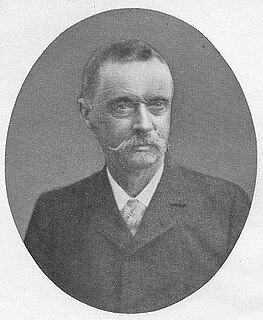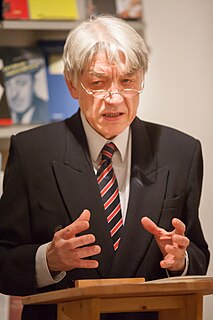External links
- Literature by and about Wolfgang W. Wurster in the German National Library catalogue
Wolfgang W. Wurster (7 July 1937 - 29 December 2003) was a German researcher in the fields of architecture and archaeology.
Wolfgang Wurster was born in Aalen, Germany. He studied architecture at the TU München. He undertook additional studies in art history and American history, in the United States and Spain. In 1963 he received his Diplom from his German university. From this point on, he concentrated on excavation methodology, CRM, and the history of architecture. In 1971, he obtained a doctorate of engineering, his dissertation being Der dorische Peripteraltempel auf dem Kolonnahügel in Aegina. In addition to holding academic positions in Munich, he also was a faculty member of the Universität Darmstadt. He did field work in the Mediterranean and South American (Ecuador and Peru).
His book Die Schatz-Gräber. Archäologische Expeditionen durch die Hochkulturen Südamerikas (1991) brought him the Rheinisches Landesmuseum Bonn's Ceram-Preis for the best book of archeology.

Uwe Timm is a German writer.

August Mau was a prominent German art historian and archaeologist who worked with the Deutsches Archäologisches Institut while studying and classifying the Roman paintings at Pompeii, which was destroyed with the town of Herculaneum by volcanic eruption in 79 AD. The paintings were in remarkably good condition due to the preservation by the volcanic ash that covered the city. Mau first divided these paintings into the four Pompeian Styles still used as a classification.
Alexander Stephan was a specialist in German literature and area studies. He was a professor, Ohio Eminent Scholar, and Senior Fellow of the Mershon Center for International Security Studies at Ohio State University (OSU).

Wolfgang Kubin is a German poet, essayist, sinologist and translator of literary works. He is the former director of the Institute for Oriental and Asian Studies at the University of Bonn, Germany. Kubin has frequently been a guest professor at universities in China, for instance at Beijing Foreign Studies University, but also in Madison, Wisconsin and in Jerusalem. Since 1989, Kubin has been the editor of the journals ORIENTIERUNGEN: Zeitschrift zur Kultur Asiens and Minima sinica: Zeitschrift zum chinesischen Geist.

Wolfgang Wickler is a German zoologist, behavioral researcher and author. He led the ethological department of the Max Planck Institute for Behavioral Physiology from 1974, and he took over as director of the institute in 1975. Even after he was given emeritus status, he remained closely associated to the institute in Seewiesen and ensured its smooth transition under the newly created Max Planck Institute for Ornithology.

Carl Georg Friedrich Wilhelm Flügge was a German bacteriologist and hygienist. His finding that pathogens were present in expiratory droplets large enough to settle around an individual, the eponymous Flügge droplets, laid ground for the concept of droplet transmission as a route for the spread of respiratory infectious diseases.
Werner Abelshauser is a German economic historian.
The Ceram Prize is a prize for non-fiction books in archaeology issued by Rheinisches Landesmuseum Bonn. It is named for C. W. Ceram, famous for his popularization of archaeology.
Wolfgang Weyrauch was a German writer, journalist, and actor. He wrote under the pseudonym name Joseph Scherer.
Ewald Schuldt, full name Ewald Adolf Ludwig Wilhelm Schuldt, was a German prehistorian who carried out significant research into the megaliths of northern Germany.

Herbert Wilhelmy was a German geographer. Wilhelmy has made significant impact in the area of Latin American regional geography, with a focus on climatic geomorphology and, especially, morphogenetic urban geography.
Wolfgang Müller-Wiener was a German architecture historian, archaeologist and Byzantinist.
Armin Geus is a German medical historian and historian of biology.
Udo Recker is a German archaeologist. He is primarily specializing in medieval and later archaeology but has an interest in south Asian archaeology, too. He is the Director of Archaeology of the German federal state of Hesse.
Horst Wolfgang Böhme is a German archaeologist with a focus on Late Antiquity / Early Middle Ages and research into castles.

Hermine "Erminia" Speier was a German archaeologist. One of the few female archaeologists of her time, she was the first female employee of the Vatican Museums and one of the first professional women to be employed by the Vatican. She was a pioneering contributor to the collections of archaeological photographs and is often credited as being the first archaeological photo-archivist.
Joachim Ritter was a German philosopher and founder of the so-called Ritter School of liberal conservatism.

The Roman fort at Weissenburg, called Biriciana in ancient times, is a former Roman Ala castellum, which is a UNESCO World Heritage Site located near the Upper Germanic-Rhaetian Limes. It lies in the borough of Weißenburg in the Middle Franconian county of Weißenburg-Gunzenhausen in Germany. Today the castellum is one of the most important sites of research in the Roman limes in Germany. The site contains partly subterranean building remains, a reconstructed north gateway, large thermal baths and a Roman Museum with an integrated Limes Information Centre.
Werner Danckert was a German folk song researcher.
Günther Massenkeil was a German musicologist, academic teacher, writer and concert singer (baritone).